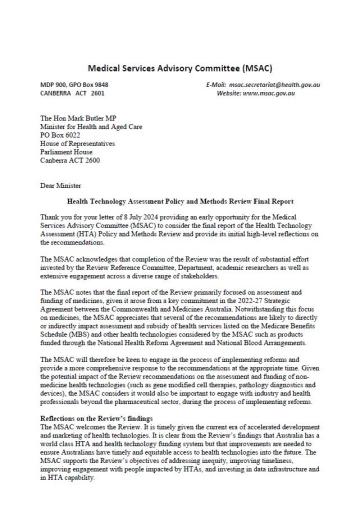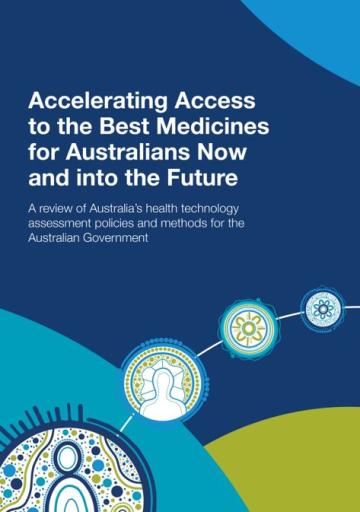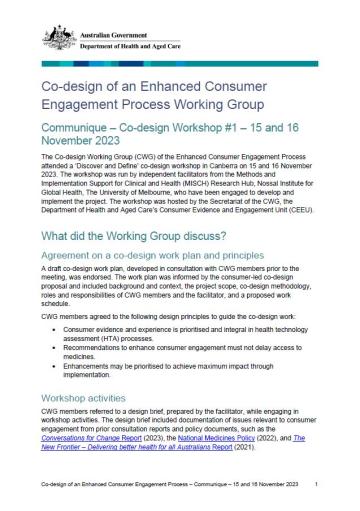Filter results
You can narrow down the results using the filters
Audience
Topics
Our work
Year
26 results
-
Pharmaceutical Benefits Advisory Committee (PBAC) and Medical Services Advisory Committee (MSAC) chairs' letters collection
This collection contains the PBAC & MSAC initial advice and reflections regarding the Health Technology Assessment (HTA) Policy and Methods Review final report, requested by the Minister of Health and Aged Care. -
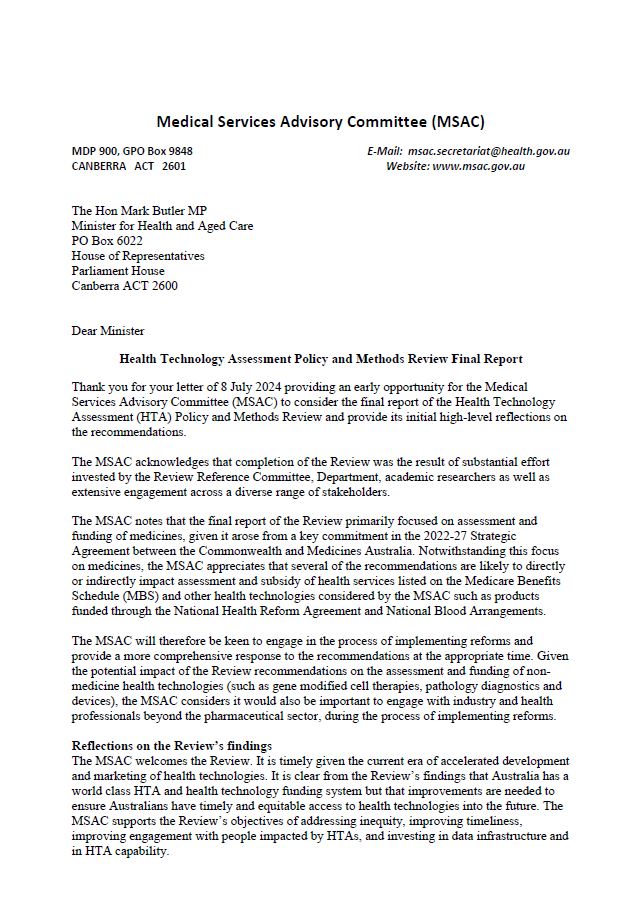
MSAC chair's letter to the Minister regarding the HTA Review
We established an Implementation Advisory Group to develop a roadmap for sequencing the government’s response to the recommendations. This document contains MSAC chair's response to the Minister regarding the final report of the HTA Review and provided their initial advice and reflections. -
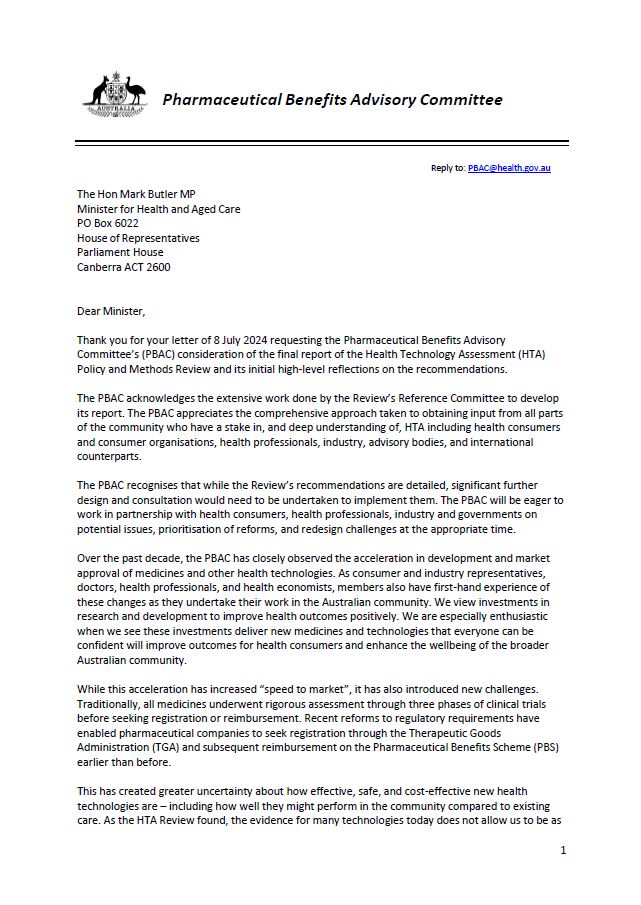
PBAC chair's letter to the Minister regarding the HTA Review
We established an Implementation Advisory Group to develop a roadmap for sequencing the government’s response to the recommendations. This document contains PBAC chair's response to the Minister regarding the final report of the HTA Review and provided their initial advice and reflections. -

Health Technology Assessment Policy and Methods Review – Final report
This document is the final report from the Health Technology Assessment Policy and Methods Review. -
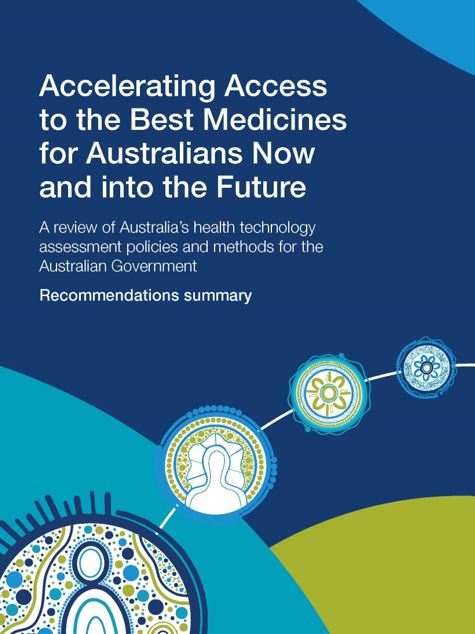
Health Technology Assessment Policy and Methods Review – Recommendations summary
This document summarises the recommendations from the Health Technology Assessment Policy and Methods Review report. -
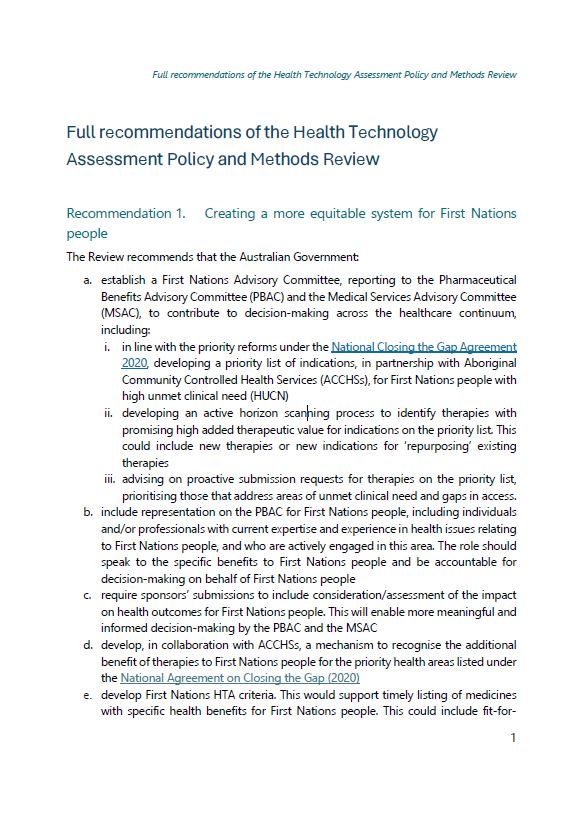
Health Technology Assessment Policy and Methods Review – Full recommendations
This document outlines all of the recommendations from the Health Technology Assessment Policy and Methods Review final report. -
HTA Review final report collection
This collection contains 3 main documents related to the Health Technology Assessment (HTA) Policy and Methods Review final report. -
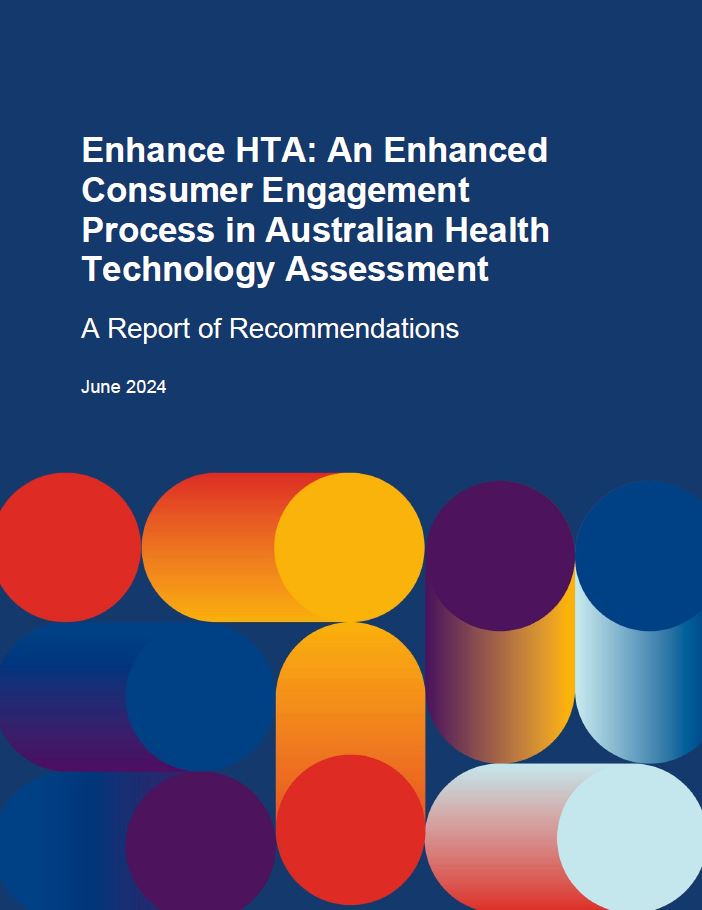
Enhance HTA: An Enhanced Consumer Engagement Process in Australian Health Technology Assessment – A report of recommendations
The Enhanced Consumer Engagement Process was developed to provide recommendations on how to increase patient and consumer evidence and input earlier in the Health Technology Assessment (HTA) process. This report explains the recommendations developed by the Co-Design Working Group. -
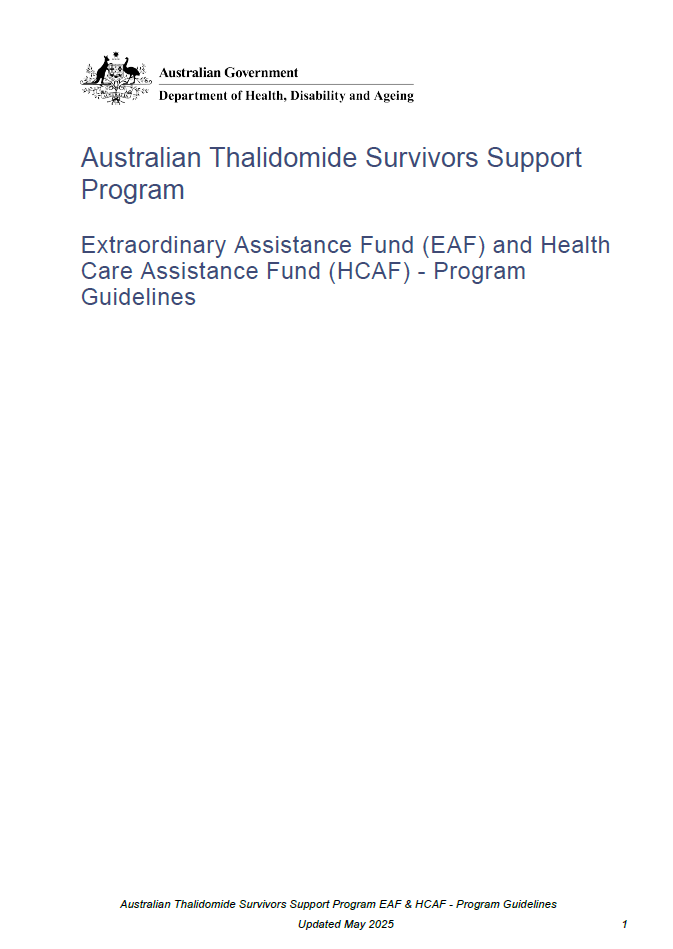
Australian Thalidomide Survivors Support Program – EAF and HCAF guidelines
These guidelines contain the requirements to access support from the Extraordinary Assistance Fund (EAF) and Health Care Assistance Fund (HCAF) under the Australian Thalidomide Survivors Support Program. -
Co-design of an Enhanced Consumer Engagement Process for health technology assessment – Consultation
This collection includes information and documents about the proposed recommendations for enhancing consumer engagement related to health technology assessment. After reading the consultation document, you can access and participate in the online consultation. -
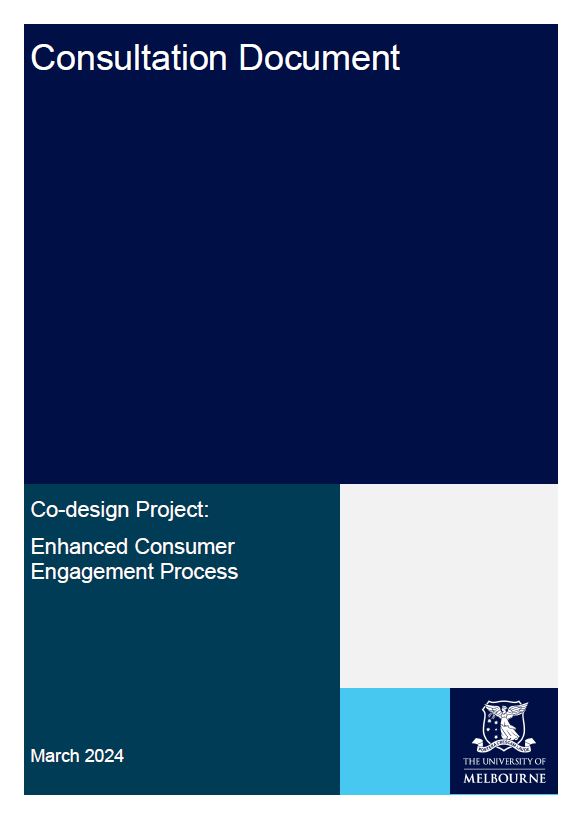
Co-design of an Enhanced Consumer Engagement Process for health technology assessment – Consultation document
This consultation document describes the proposed recommendations for the co-design of an Enhanced Consumer Engagement Process related to health technology assessment (HTA). Read this first to inform your responses to the consultation. -
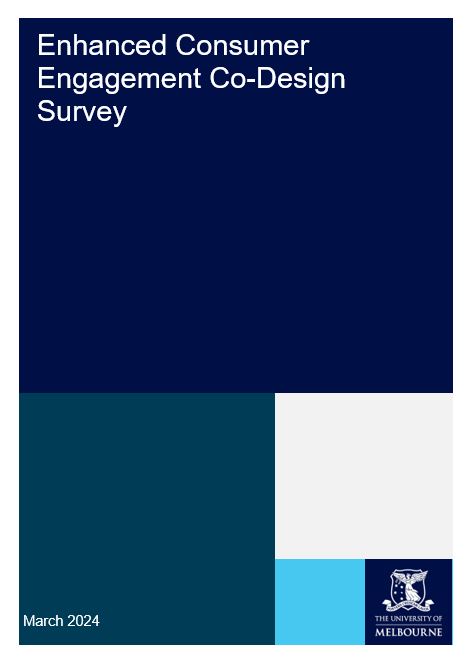
Co-design of an Enhanced Consumer Engagement Process for health technology assessment – Consultation survey questions
This document includes the consultation questions for the co-design of an Enhanced Consumer Engagement Process project’s consultation survey. View the consultation questions to help you prepare for your responses to the online survey. -
Co-design of an Enhanced Consumer Engagement Process – Co-design Working Group – Communiques
This collection contains communiques from the meetings of the Co-design Working Group. The communiques document their work on the Co-design of an Enhanced Consumer Engagement Process. -
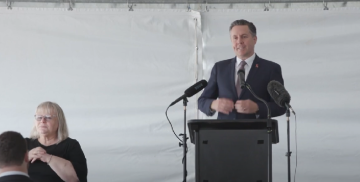 56:38
56:38Dedication ceremony and unveiling of the National Site of Recognition for Thalidomide Survivors
The National Site of Recognition for Thalidomide Survivors and their Families acknowledges the thalidomide tragedy in Australia. It serves as a lasting reminder to all Australians that the lessons of the tragedy must never be forgotten. -
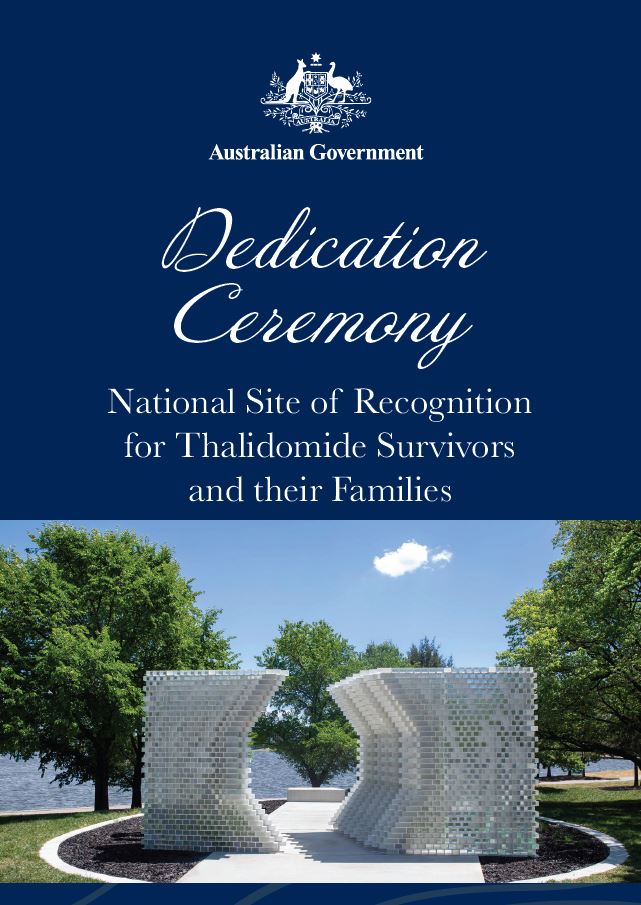
Dedication Ceremony for the National Site of Recognition for Thalidomide and their Families – Program Booklet
The National Site of Recognition was dedicated by the Minister for Health and Aged Care, along with thalidomide survivors and their families, on 30 November 2023. This is the program booklet from the ceremony. -
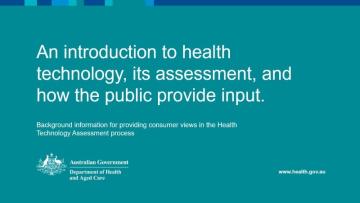 11:55
11:55An Introduction to Health Technology
This presentation aims to help you understand what is health technology. It discusses the assessment process of different health technologies for them to become funded by the Australian Government, and how you can provide feedback for medicines, medical services and products. -
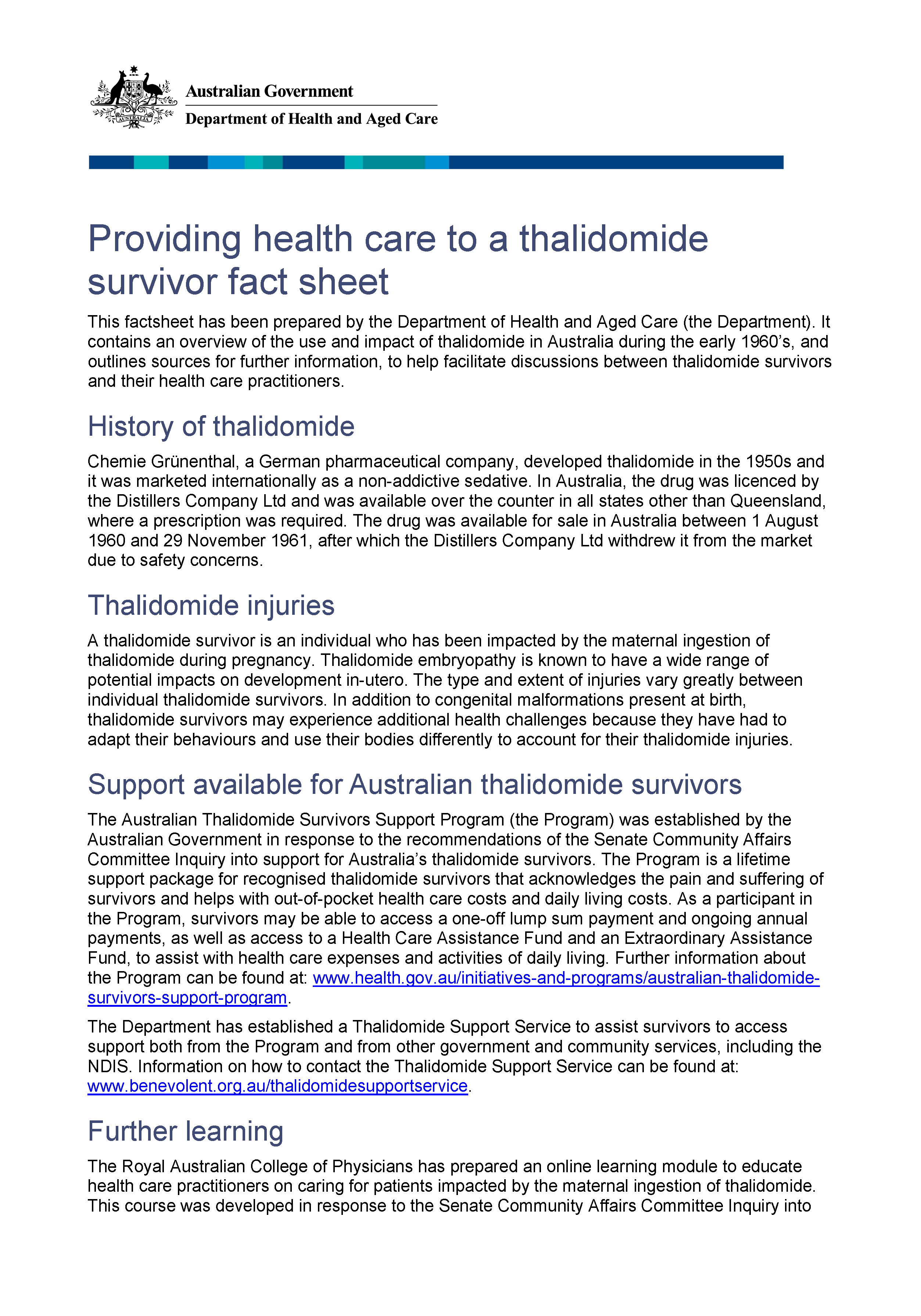
Providing health care to a thalidomide survivor fact sheet
This fact sheet is designed to help facilitate discussions between thalidomide survivors and their health care practitioners. -
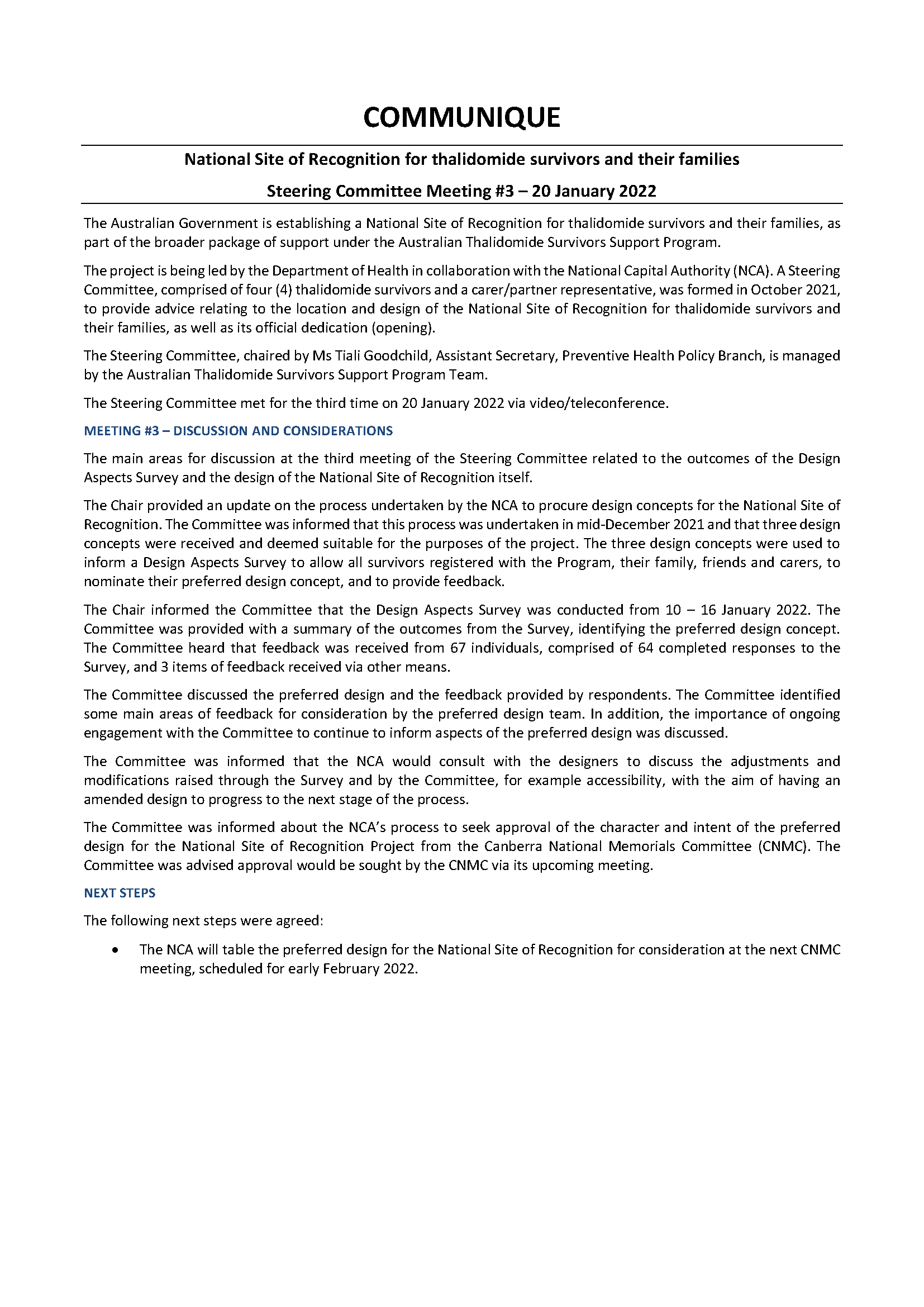
National Site of Recognition Steering Committee communique – 20 January 2022
This communique outlines the main points from discussion from the National Site of Recognition Steering Committee meeting including the next steps in the development of the National Site of Recognition for thalidomide survivors and their families. -
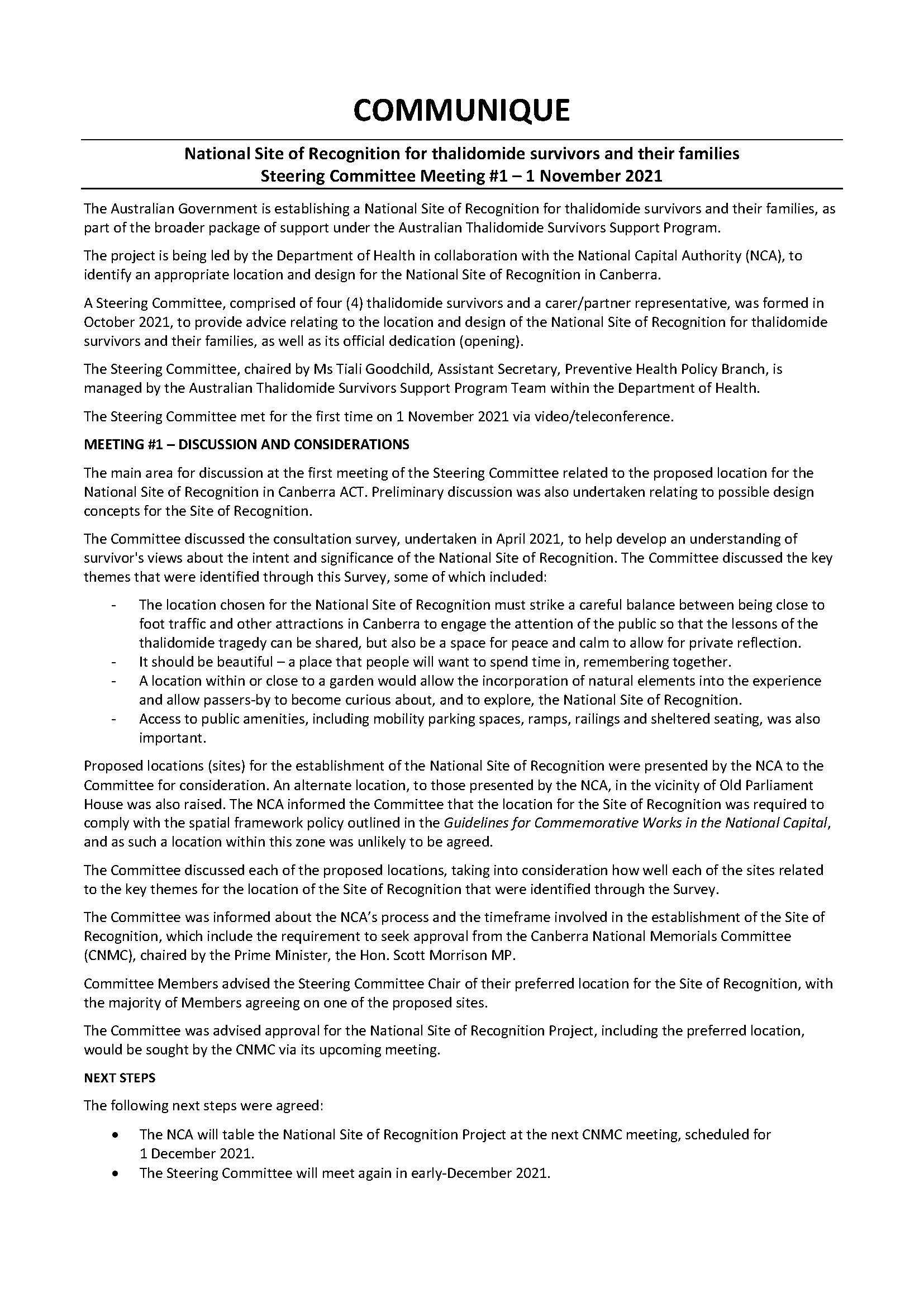
National Site of Recognition Steering Committee communique – 1 November 2021
Details of the meeting of the National Site of Recognition for thalidomide survivors and their families Steering Committee held on 1 November 2021. -
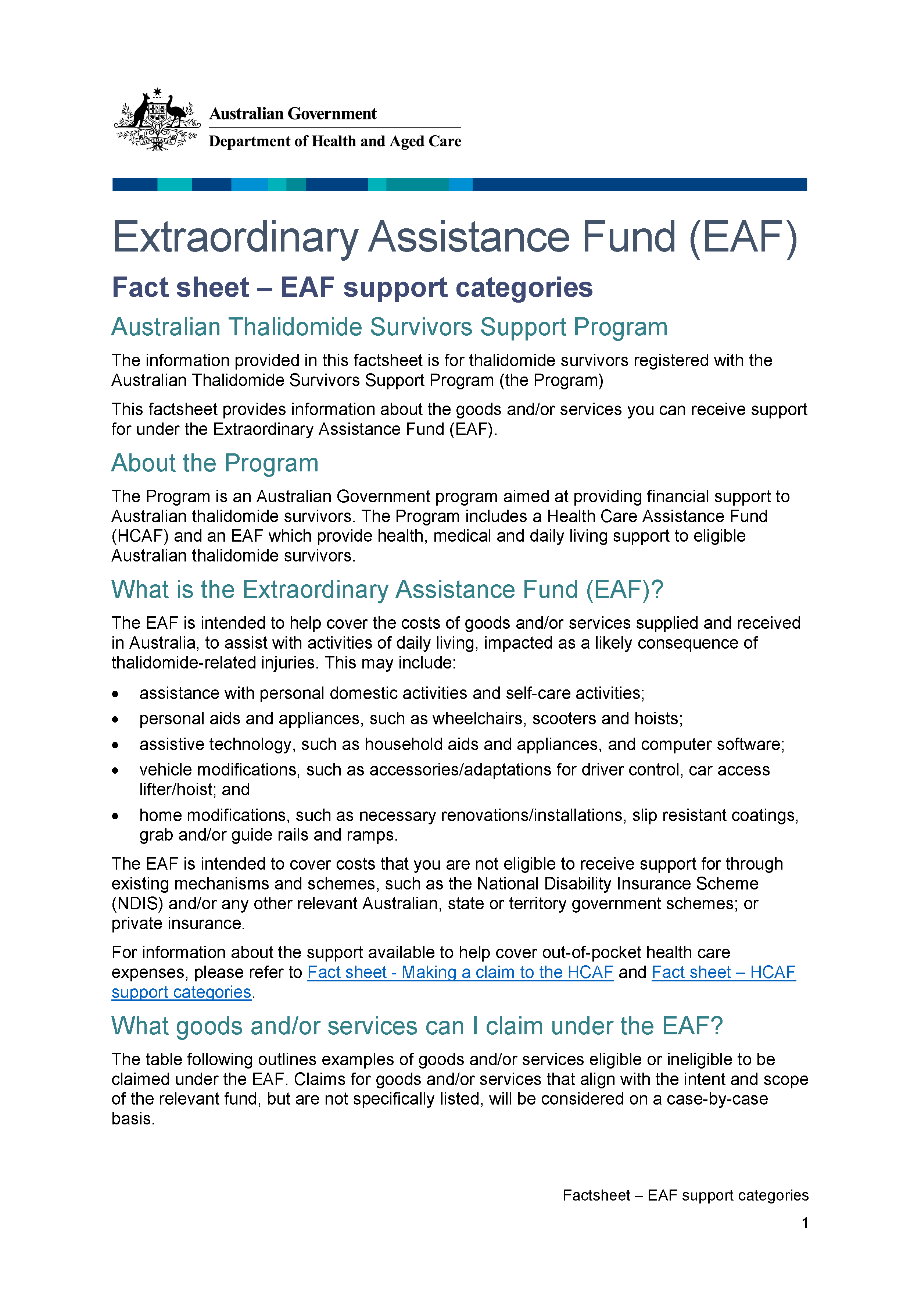
EAF support categories fact sheet
This fact sheet provides information for participants of the Australian Thalidomide Survivors Support Program about the categories of goods and services which are eligible to be claimed under the Extraordinary Assistance Fund (EAF). -
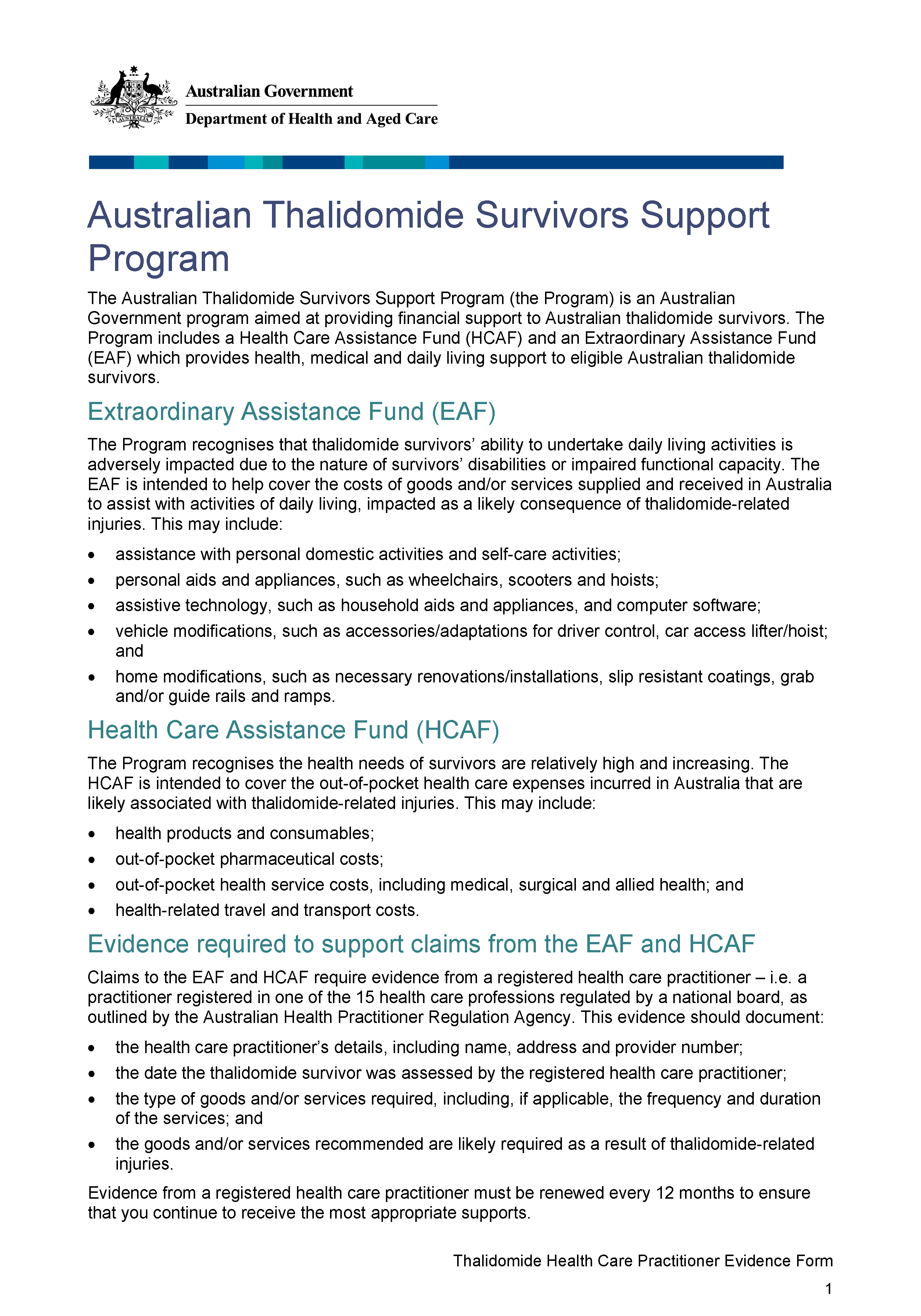
Thalidomide health practitioner evidence form
This form is a template for health practitioners to provide evidence to support an eligible thalidomide survivor (patient) to receive support from the Extraordinary Assistance Fund (EAF) or the Health Care Assistance Fund (HCAF).
-
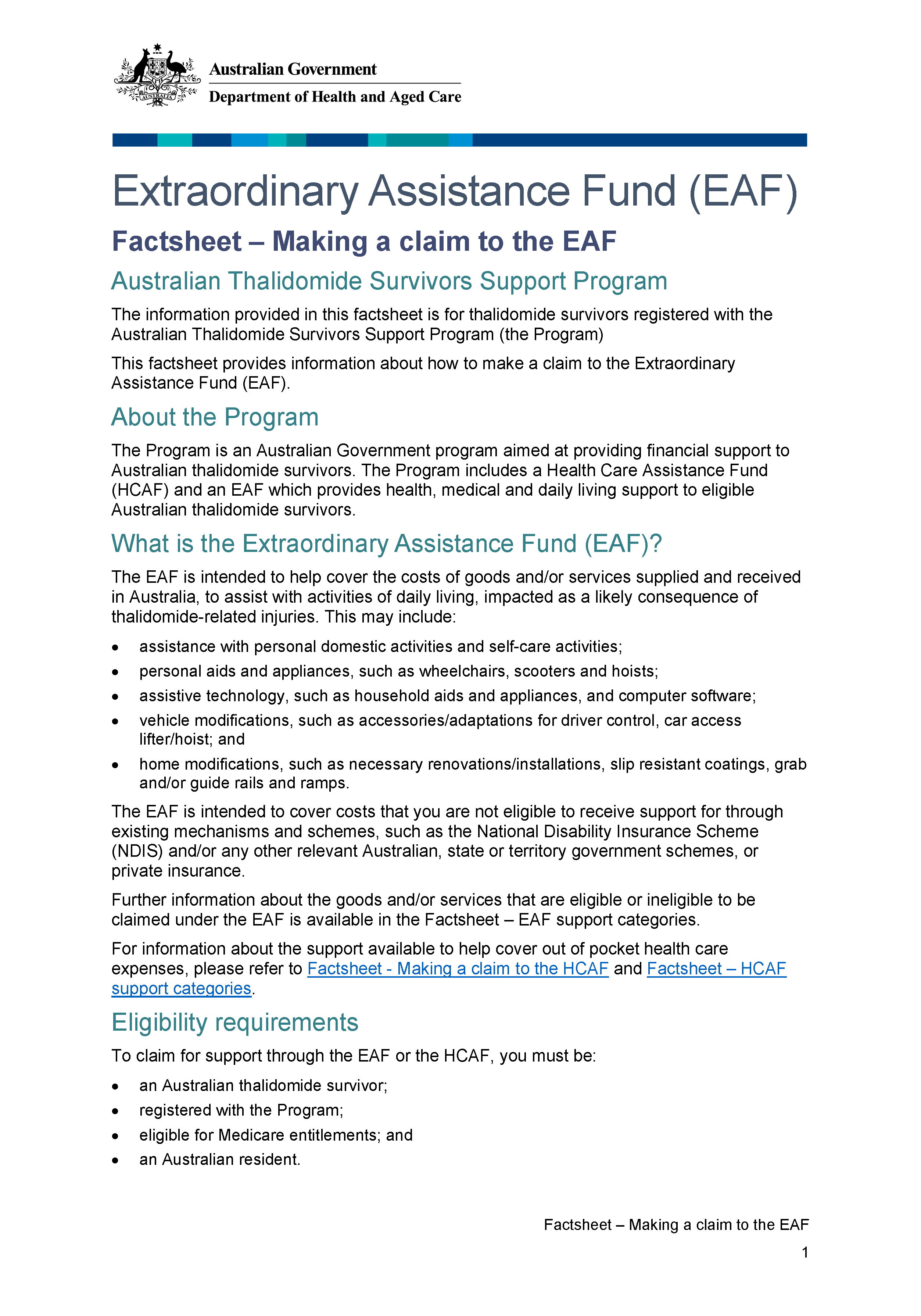
Making a claim to the EAF fact sheet
This fact sheet provides information about how participants of the Australian Thalidomide Survivors Support Program can make a claim to the Extraordinary Assistance Fund (EAF). The EAF helps cover the costs of goods and services to assist with activities of daily living. -
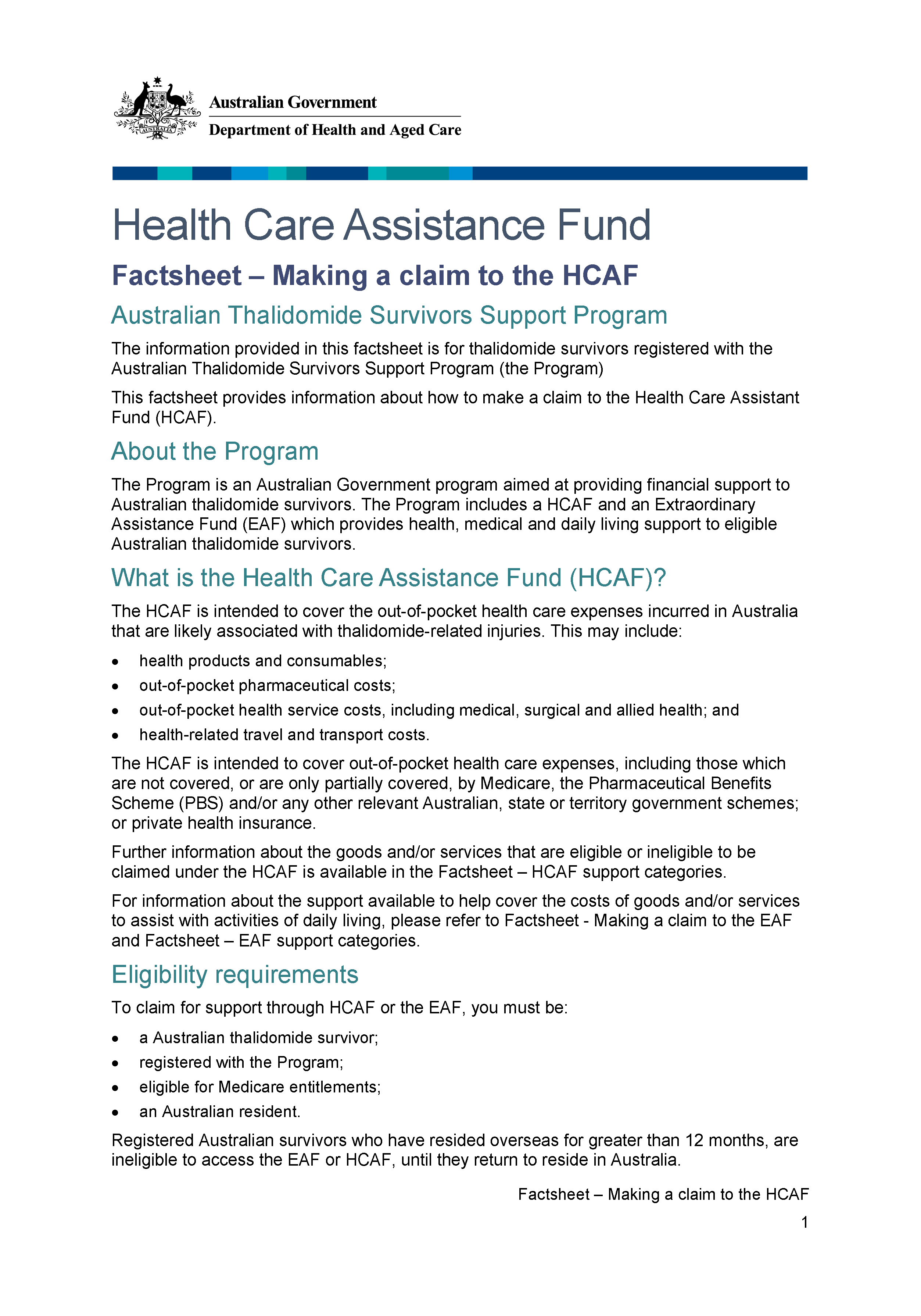
Making a claim to the HCAF fact sheet
This fact sheet provides information about how participants of the Australian Thalidomide Survivors Support Program can make a claim to the Health Care Assistance Fund (HCAF). The HCAF helps cover out-of-pocket health care expenses incurred as a direct result of thalidomide injuries. -
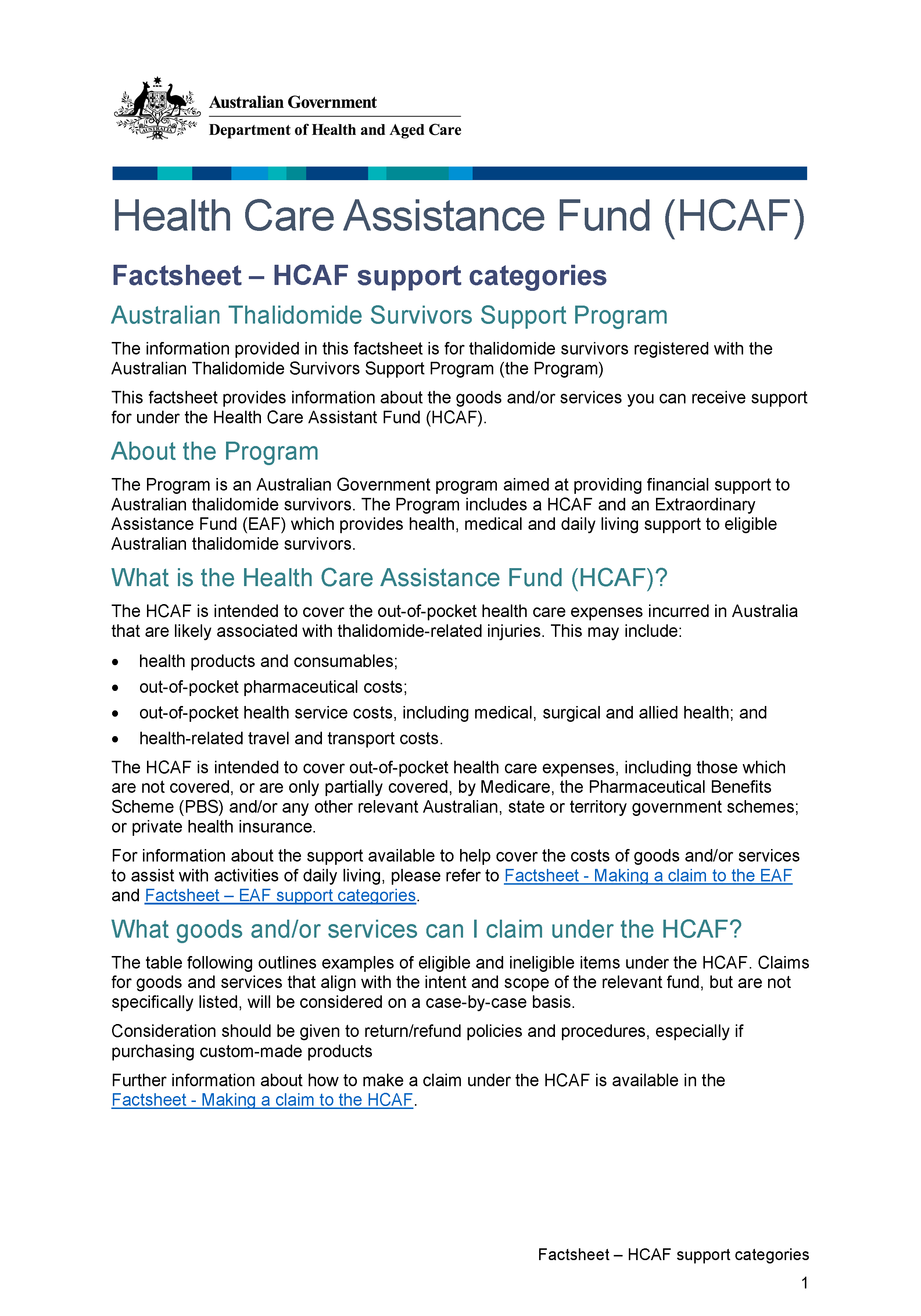
HCAF support categories fact sheet
This fact sheet provides information for participants of the Australian Thalidomide Survivors Support Program about the categories of goods and services which are eligible to be claimed under the Health Care Assistance Fund (HCAF). -
Australian Thalidomide Survivors Support Program resources
A series of fact sheets and guidelines about Australian Thalidomide Survivors Support Program.

